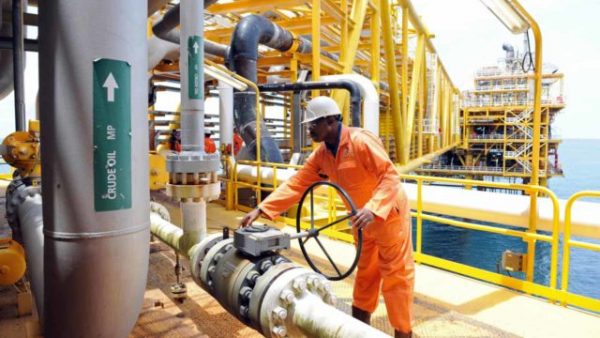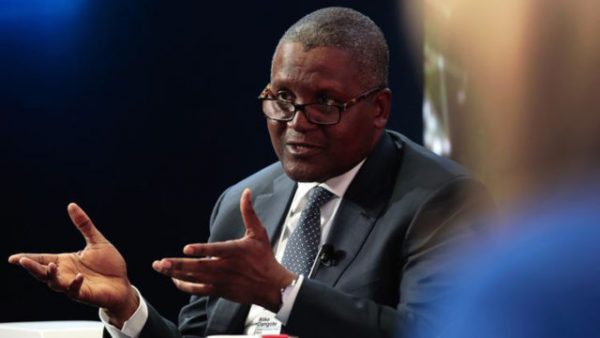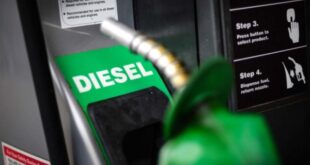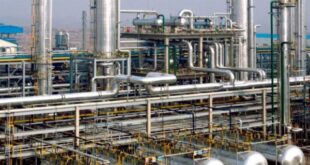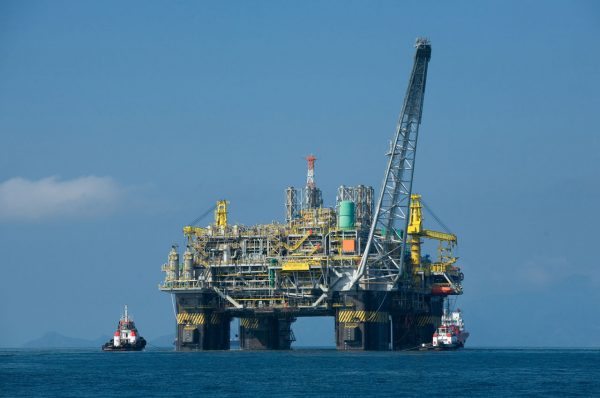 • NNPC lists sector’s achievements
• NNPC lists sector’s achievements
The Nigerian National Petroleum Corporation (NNPC) yesterday said daily crude oil production recorded an upward swing of about 2.09million barrels in the outgone 2018.

The increase, which translates to 9 per cent, when compared with the 2017 average daily production of 1.86million barrels, is an indication that the nation maintained year-on-year improvement, NNPC Group Managing Director, Dr. Maikanti Baru said.
In a statement signed by NNPC Group General Manager, Group Public Affairs Division, Ndu Ughamadu, Baru noted that the new business models his team emplaced in the national oil company’s old and new business entities led to the giant strides.

The Nigerian Petroleum Development Company (NPDC), Nigerian Gas Company (NGC), Petroleum Products Marketing Company (PPMC), Duke Oil, NIDAS and Integrated Data Services Limited (IDSL) are among the re-engineered companies listed by the Baru in his statement.

Expressing enthusiasm on the 52 per cent daily crude oil production growth by the company vis-à-vis its 2017 performance, the corporation said NPDC, its upstream flagship company, made the major contribution to the industry’s success story in 2018,
Baru, in his end-of-year statement, explained that the production from NPDC’s operated assets alone grew from an average of 108,000 of oil per day (bod) in 2017 to 165,000bod in 2018, describing the feat as the strongest production growth within the oil industry in recent times. He said it was worth being celebrated.
The GMD said NPDC’s equity production share which stands at 172,000bod, representing about 8 per cent of national daily production, was no less impressive.
He said the results were outcomes of initiatives his management team emplaced, including the Asset Management Tea (AMT) structure, strategic financing, units autonomy and security architecture framework.
On the industry milestones in the outgone year, Baru listed, among others, the 200,000bop addition which the Egina Floating Production Storage and Offloading (FPSO) completed and sailed away to location in August last year.
Baru disclosed that the group saved $1.7billion with the corporation’s Joint Venture (JV) partners over a five-year tenor repayment plan, adding that the corporation had defrayed $1.5billion of the arrears.
He said that NNPC would stick to the repayment agreement with the JV partners while transiting to self-funding IJV modes with the corporation’s partners. Baru noted that addressing cash call challenges has led to increased commitment and enthusiasm to invest in the Nigerian oil and gas industry even as it has also boosted NNPC’s credit profile internationally.
The GMD listed more achievements of the NNPC in the upstream sector as reduction in contracting cycle for upstream operations to nine months from an average of 24, even as the corporation targets a six months cycle; lowering of production cost from $27/barrel to $22/barrel; and improving on the security situation in the Niger Delta through constructive engagement and dialogue with relevant stakeholders.
In the frontier basins, NNPC has intensified explorations activities in the Benue Trough, with the expected spudding of Kolmani River Well 2 on 19 January, 2019, Baru revealed.
He explained that activities would resume in the Chad Basin as soon as there is a green light on the security situation in the enclave.
The GMD stated that in 2018, Nigeria achieved an average national daily gas production of 7.90bscf, translating to 3 per cent above the 2017 average daily production of 7.67bscf.
He said out of the 7.90bscf produced in 2018, an average of 3.32bscfd (42 per cent) was supplied to the export market, 2.5bscfd (32 per cent) for reinjection/fuel gas, 1.3bscfd (16 per cent) was supplied to the domestic market and about 783mmscfd (10 per cent) was flared.
According to him, out of the 1.3bscfd supplied to the domestic market, an average of 71mmscfd went to the power sector, while 470mmscfd was supplied to the industries and the balance of 69mmscf delivered to the West African market through the West African Gas Pipeline (WAGP).
Baru said NNPC would bridge the medium-term domestic gas supply deficit by 2020 through the corporation’s seven Critical Gas Development Projects (CGDPS).
A reputable project management consulting firm is collaborating with an NNPC team to achieve accelerated implementation of the projects.
Baru assured that full implementation of the project would boost domestic gas supply from about 1.5bscf/d to 5bscf/d by 2020, with a corresponding 500 per cent increase in power generation and stimulation of gas-based industrialization.
He said all existing power plants in the country now have a permanent gas supply pipeline infrastructure, NNPC would continue to expand and integrate its gas pipeline network system to meet increasing domestic demand.
The statement listed key gas pipeline infrastructure projects on which significant progress had been made in their execution to include Escravos-Lagos Pipeline System (ELPS II), Obiafu/Obrikom-Oben (OB3), Odidi-Warri Expansion Pipeline (OWEP), Trans Nigeria Pipeline Project (TNGP) – Ajaokuta-Kaduan-Kano (AKK) Pipeline, Trans Nigeria Pipeline Project (TNGP) and Nigeria-Morocco Gas Pipeline (NGMP) Project.
In the midstream refinery sub-sector, Baru expressed regret that the nation’s three refineries had not undergone Turn Around Maintenance (TAM) for an aggregate of 42 years combined.
 MMS PLUS NG – Maritime, Aviation, Business, Oil and Gas News Online Newspaper with coverage in Maritime, Oil and Gas, Aviation, Power and Energy as well as Financial News
MMS PLUS NG – Maritime, Aviation, Business, Oil and Gas News Online Newspaper with coverage in Maritime, Oil and Gas, Aviation, Power and Energy as well as Financial News



